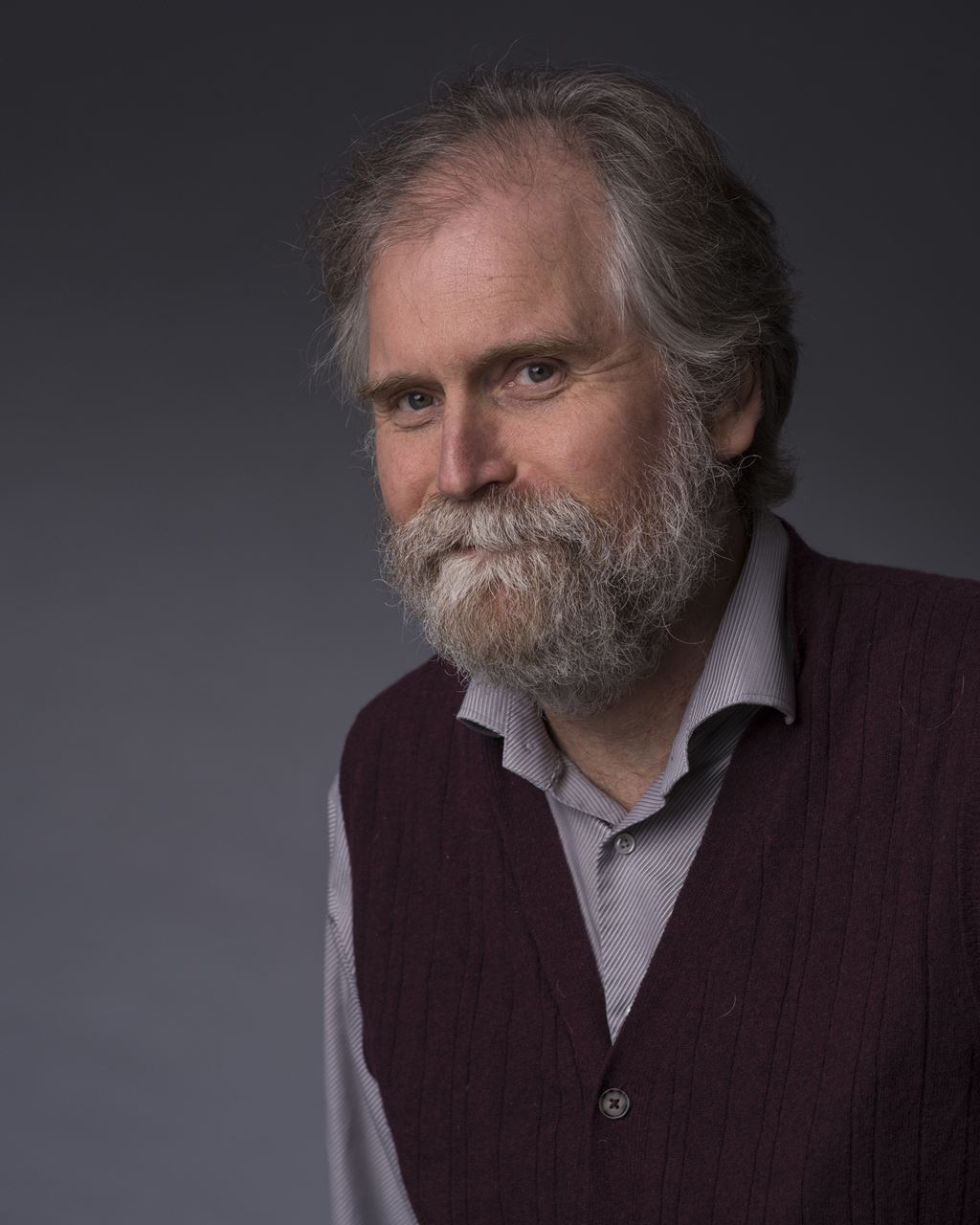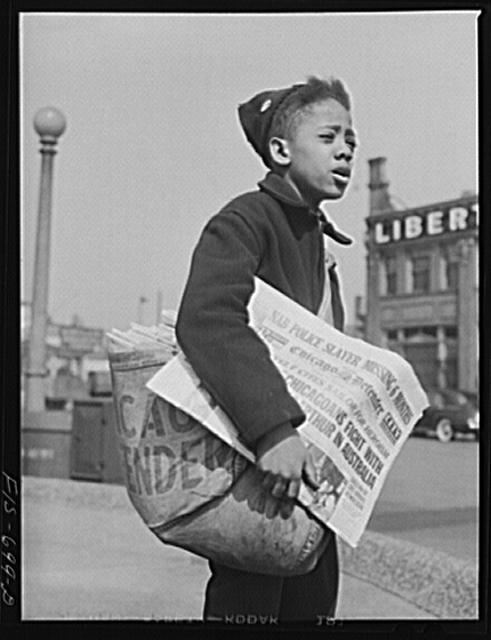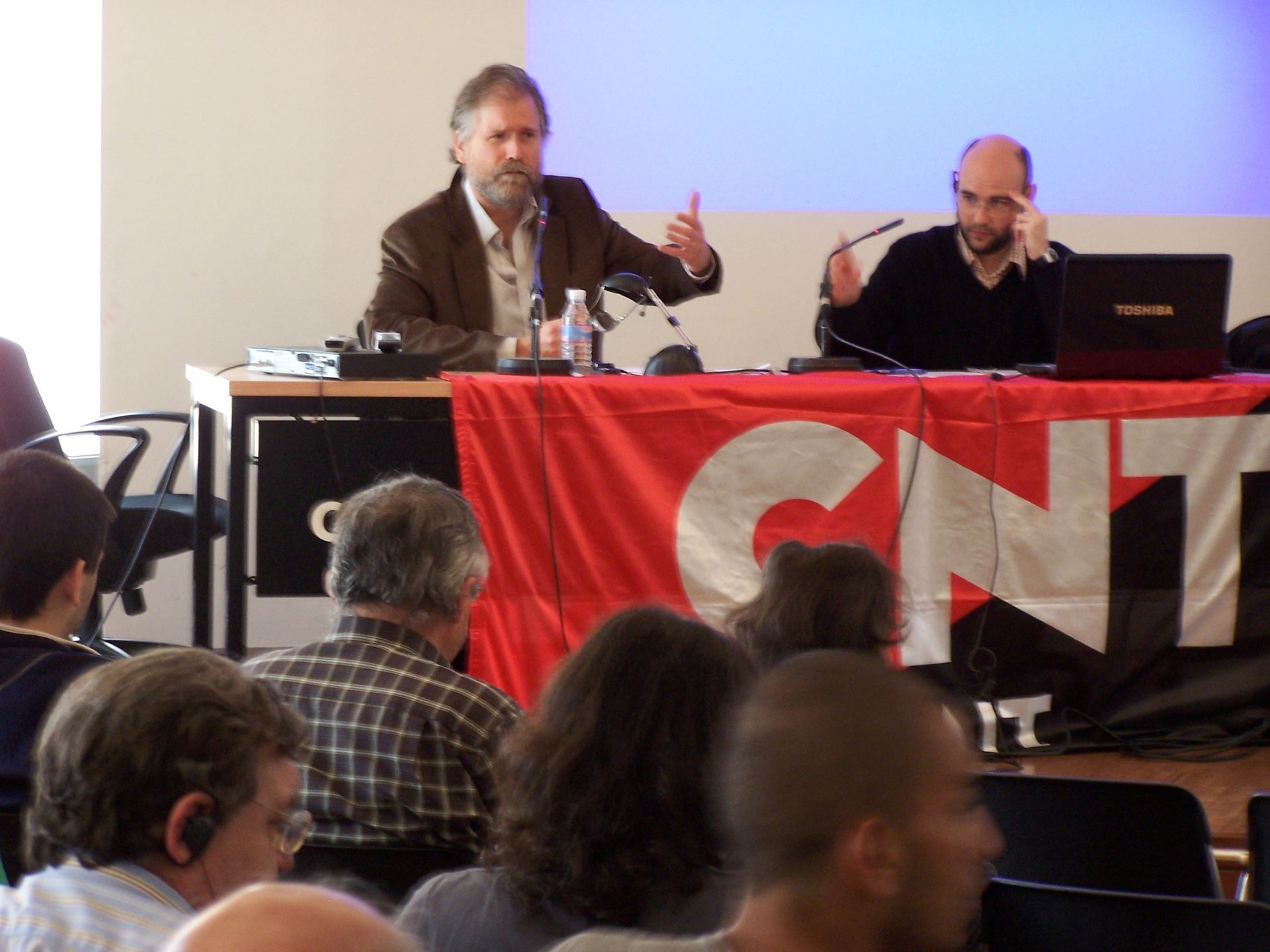How did you become involved in AJHA? 
I don't remember how I learned about AJHA. I attended my first conference in 1988, in Charleston. I had done a collective biography of labor press editors for a social history seminar as part of my Ph.D. program at Illinois, and presented the paper there (and later published it in American Journalism). I felt welcome, and experienced a welcome break from the pretentiousness I saw at some other conferences. I've attended several times since then, reviewed for the journal, and such. It's been harder to make the conferences recently; they hit at a fairly awkward time in our academic calendar and it's not as easy to skip town for a few days as it used to be.
What drew you to the labor press?
I entered Illinois thinking I would do a dissertation on the American labor press, grounding it in social movement theory and exploring the ways the labor movement sought to construct a democratic, accountable communications system. But it quickly became obvious that this was a far more complex task than I had imagined. On the one hand, I had not given nearly enough thought to the role of immigrant workers and the vast array of working class newspapers they created and sustained. While there was some excellent work on a few of these papers, overall there was very little.
The situation has improved a bit in recent years, especially as regards the Yiddish-language press. There was also a lot of work to be done on the English-language labor press, and especially on local labor papers -- most weeklies, but also including daily newspapers in Chicago, Milwaukee, New York and Seattle. It became clear that I was going to have to do a lot of basic research, and so I shifted to studying the working class press in Chicago. Chicago had several dailies published by and for working class communities, in Czech, English, German, Lithuanian, Polish, Slovenian and other languages, as well as scores of weekly and monthly publications issued by local and national unions, mutual aid societies and political organizations. And these existed in a particular ecological context, negotiating the relationship between ethnicity and class within their communities as well as their place in the broader media and political environment.
 As I was exploring the Chicago Daily Socialist's rise from an undercapitalized small-circulation political daily to the city's largest circulation daily newspaper (which inevitably led to its bankruptcy, given its inability to attract the advertising dollars that subsidized its capitalist competitors), this quickly led me to turn to the archival records of the Chicago Federation of Labor and Chicago Daily News publisher (and head of the Newspaper Publishers Association) Victor Lawson, which contained a wealth of material about collusion between the publishers to manage competition, control labor, and ensure a business-friendly political environment. The hiring of gangsters by rival publishers to control newsboys was documented in Lawson's papers, as were squabbles over publishers refusing to share the costs of gunmen to shoot up news wagons delivering rival papers. This led to studies of the Chicago Newspaper Trust, Chicago newsboys, and book chapters on the economic role newsboys played in the U.S. and on newsboy strikes. The newsboys themselves left few records, but there is quite a bit of material in the archives of publishers and other labor organizations, and also in the records of social reformers and organizations battling child labor. These materials need to be read critically, of course, filtered as they are by economic interest and middle class sensibilities, but we can learn quite a bit from them about newsboys and the central role they played in newspaper distribution for over a century.
As I was exploring the Chicago Daily Socialist's rise from an undercapitalized small-circulation political daily to the city's largest circulation daily newspaper (which inevitably led to its bankruptcy, given its inability to attract the advertising dollars that subsidized its capitalist competitors), this quickly led me to turn to the archival records of the Chicago Federation of Labor and Chicago Daily News publisher (and head of the Newspaper Publishers Association) Victor Lawson, which contained a wealth of material about collusion between the publishers to manage competition, control labor, and ensure a business-friendly political environment. The hiring of gangsters by rival publishers to control newsboys was documented in Lawson's papers, as were squabbles over publishers refusing to share the costs of gunmen to shoot up news wagons delivering rival papers. This led to studies of the Chicago Newspaper Trust, Chicago newsboys, and book chapters on the economic role newsboys played in the U.S. and on newsboy strikes. The newsboys themselves left few records, but there is quite a bit of material in the archives of publishers and other labor organizations, and also in the records of social reformers and organizations battling child labor. These materials need to be read critically, of course, filtered as they are by economic interest and middle class sensibilities, but we can learn quite a bit from them about newsboys and the central role they played in newspaper distribution for over a century.
What are you working on now?
Recently I've returned to work I was doing in grad school on the political economy of the media. I had published some articles on the retail book industry, on radio regulatory policy, and on collusion between newspaper publishers at the turn of the century. A few years ago I became intrigued by the debate over news deserts, a problem that to me involves much more than the decline in the daily press. Even before papers began closing and news departments were transformed into Potemkin Villages of prognosticating pundits, the lives and concerns of ordinary people had disappeared from the news columns. Several years ago I developed a first year seminar on the intertwined crises in democracy and the media, and three years ago began offering a political economy of communications course that meets our college's general education junior seminar synthesis requirement. I've been revisiting Bagdikian's Media Monopoly books, trying to better document the extent of a problem he wrote about quite convincingly, but largely anecdotally, and to explore how these trends have continued in the two decades since his last volume was published. I'm also looking back to concerns over concentration in book publishing and newspapers dating back to the 19th century. I have a fairly heavy teaching schedule, but there's certainly a book in this if I can carve out some time for it.
As I've poked around in archives over the years, I've gathered quite a bit of material that I need to develop more fully. I have some papers on labor struggles in Chicago newspapers that I'd like to get into publishable shape. I had been holding off on these for a larger book on Chicago newspaper ecology, but I have several hundred pages written on different aspects of that and it's probably time to start letting them out into the world. A couple of years ago I published a chapter on Cultura Obrera, a Spanish-language anarchist labor paper published in New York City under different auspices from 1910 into the 1950s. This was an explicitly transnational publication, distributed by seamen from Buenos Aires to Boston, and in its first two decades played a central role in efforts to build an international maritime workers union. The Spanish immigrant marine firemen who sustained the paper into the 1920s (when they were displaced by diesel engines) were one of the anchors for the Industrial Workers of the World's strong presence in the industry (the other was its control of the Philadelphia docks and its strong appeal particularly to African-American dockworkers across the country), resulting in Congressional hearings, deportations, and other repressive measures.
What hobbies (outside of academia) do you have?
I don't know that I have hobbies as such. Years ago I used to play trumpet and go to jazz clubs. But between work and my wife not much caring for jazz and my daughter's homework, I don't get out that often. We have a community bookstore that takes a fair bit of time, and publish a labor magazine and a labor history calendar. And I read, not as much as I'd like to, but certainly more than most.
Jon Bekken is a Professor of Communication at Albright College in Pennsylvania.

